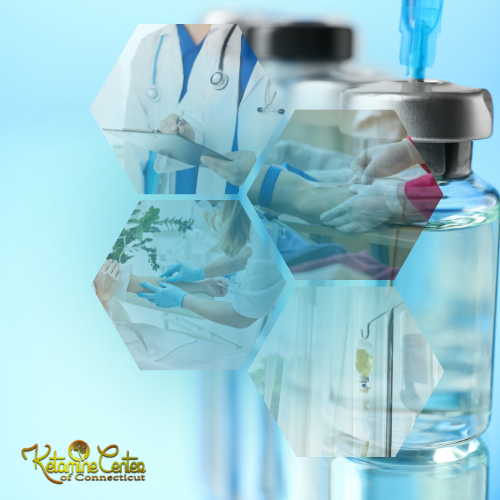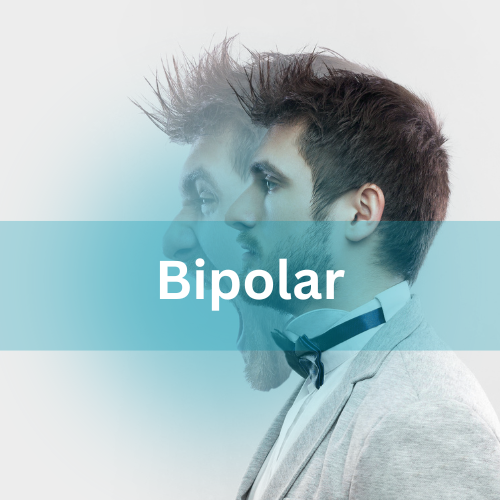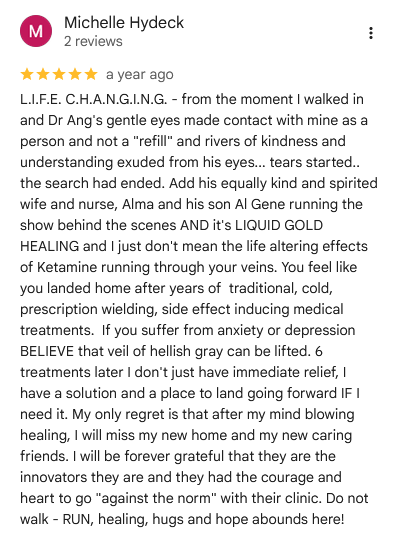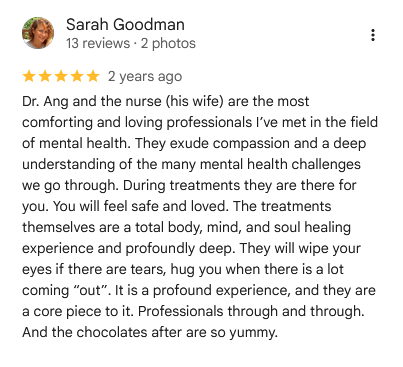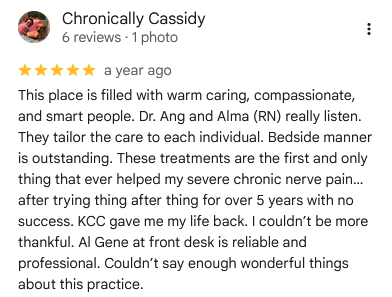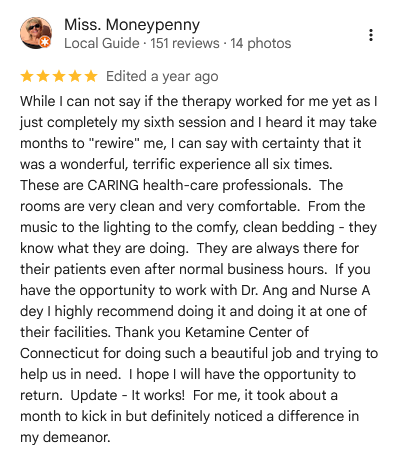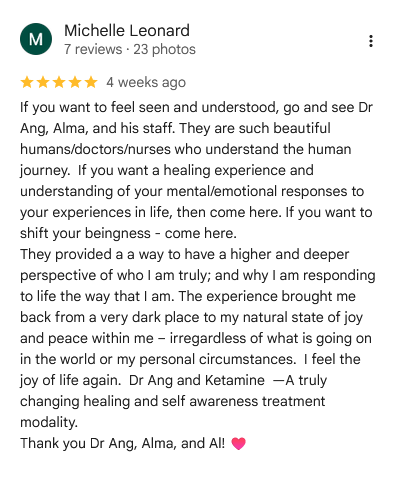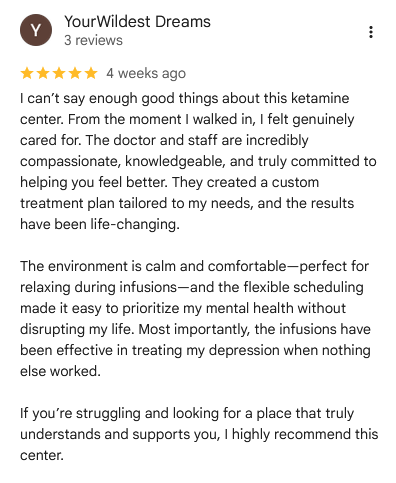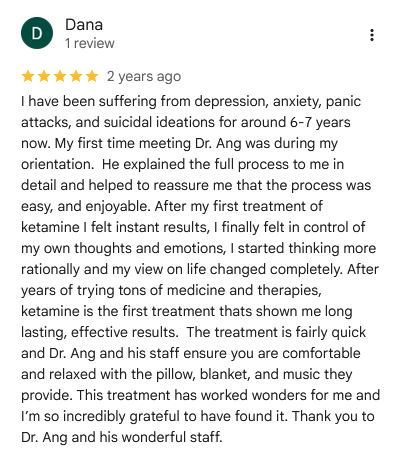Frequently Asked Questions
Have more questions?
Give us a call Contact Us.
Ketamine has been used as an anesthetic and pain relief medication in operating rooms for decades. It is a very safe depression medication in the hands of properly trained healthcare professionals. Anesthesiologists are the most highly trained physicians when it comes to the safe use of ketamine.Its use as a treatment for depression, including treatment resistant depression, and other mental health conditions is at sub-anesthetic doses, below those necessary to induce general anesthesia. Ketamine is also frequently used to treat patients experiencing chronic pain conditions.
Pregnancy, breastfeeding, uncontrolled and untreated high blood pressure and untreated hyperthyroidism.
Ketamine has been abused as a recreational drug. Street drug use is in doses vastly higher than the sub-anesthetic doses used for the treatment of depression and other mental health conditions.As mentioned above, ketamine is used legally and safely everyday in the specialty of anesthesia and is a very safe medication in experienced hands. Incidentally, a large number of the drugs used in anesthesia practice have the potential for abuse, so ketamine is not unique in this respect. The key is administering the right dose to the right patient in the right setting.
Research over the last 5-10 years has shown that intravenous administration of ketamine in sub-anesthetic doses remarkably benefits 70% of people suffering from severe depression.While the benefits can truly be remarkable, they often occur in ways that differ from some patients’ expectations. That is, the changes produced by ketamine can be subtle, and while they occur quickly, they do not always manifest themselves immediately.
We have found 6 initial infusions to be the most high yield. It has been shown that serial infusions are more effective than single infusions, and the majority of patients who respond to ketamine treatment require maintenance infusions on an ongoing basis following the initial series.
The frequency of these maintenance infusions varies greatly from person to person.
Yes, you should not stop your antidepressant medications in order to receive ketamine. It is essential that we review your current medication list prior to beginning ketamine treatments.
Ketamine is not physically addicting, but has been show to be psychologically addicting in those using it recreationally at much higher doses and in far greater frequencies than we will use.
The entire process including recovery takes about 60 minutes.
Most patients experience a mild dissociation or inner reflective experience that is generally well tolerated. If you experience nausea, mild anxiety or any unpleasant sensations we will be there to treat you and take care of you. Within 15 minutes of ending the infusion, your thinking will be clear.
No solid food for 4 hours before a ketamine infusion. Clear liquids only 2 hours before the infusion.

